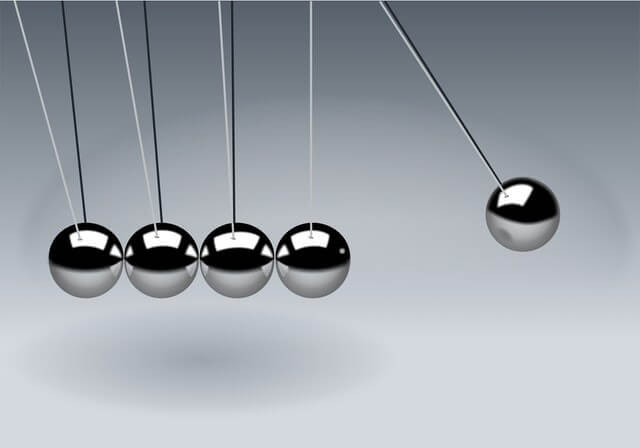Childhood’s Equal And Opposite Effects
Over a decade ago I introduced what is referred to as the “Equal and Opposite Principle.” Similar to Sir Isaac Newton’s Third Law of Motion, the Equal and Opposite Principle is built on this statement:
“For every action there is an equal and opposite reaction.”
sir isaac newton
Simply said, proportional to the emotional pain and loss an individual experiences through childhood, they will construct an equal and opposite “ideal” in many areas of their adult life. The ideal will be opposite in nature and equal in intentionality to the childhood pain.

Stuffed down, but not gone
Children lack the maturity to know what to do when they experience pain and loss, especially emotionally. No doubt, there are as many coping methods as there are humans who’ve had to cope with emotional pain. That’s not really what we’re exploring. My point is that, although coped with and “survived,” emotional pain from childhood remains emotional pain when you become an adult. Only now we’re rarely conscious of it.
We think that if we can just keep stuffing it down and ignoring it, the pain will eventually go away, or at least subside to where it doesn’t “bother us” any more.
By not dealing with the emotional pains experienced in life, what occurs is actually quite the opposite of what we had hoped to accomplish. Rather than this pain being rendered powerless, it actually takes on a power greater than we realize or manage. This is because it lies smoldering in the unconscious areas of our mind.
What is emotional pain?
Emotional pain is the emotional byproduct of a person’s life experiences, most notably during childhood. These experiences don’t necessarily have to be negative in themselves in order to foster emotional pain in the one experiencing them. The way the child interprets their experience — not what actually occurred — defines whether there is pain or not.
The accumulation of emotional pain through childhood is referred to by the term “shame.” The accumulation of painful emotions begins to cause the child to formulate “false beliefs” in their mind and heart — conclusions that seem accurate yet not be what actually occurred in reality.
Emotions only have two pathways they can follow
Expressed
Expression occurs from the inside out. Although expression can at times be hurtful or damaging, there are very healthy means of emotional expression. Regardless the method you choose, expressing emotions frees your heart from the weight of unresolved, pushed down emotions, and allows you to feel, reconcile, and grow.
The ways people express their emotions are unique, yet limitless. Examples might include: yelling, singing, crying, grieving, talking, exercising, praying, creating, counseling, and so on.
Repressed
Repression occurs from the outside in. While you may be thinking you’re doing a good thing by not expressing your emotions outwardly so that you don’t hurt or offend another person. you’re actually creating an emotional cancer in your heart.
The ways people repress their emotions are limitless; all having virtually the same harmful effect. Examples might include: blocking unpleasant thoughts, holding on to painful memories, replaying past hurts and failures over and over in your mind, believing things that are familiar yet not true.
What defines the “ideal?”
I have chosen the word “ideal” to describe the outcome that is created in adulthood because we make a decision in our subconscious mind to NEVER feel the pain we experienced as a child. So, presumably, if we create the opposite circumstances as an adult, our pain and shame can be kept locked away with no one any the wiser. The ideal often has more of its basis in fantasy than in reality.
Let me share an example i see commonly in my counseling office. A woman was raised in a home without a father who was emotionally and spiritually mature — whether literally absent or emotionally unavailable. As a result, she came out of childhood with no real concept of what a husband and father should be. From the perspective of the Equal and Opposite Principle, this woman will very predictably carry with her the fantasy (belief in something that is not real) of the ideal husband for her and father for her children.
Why would she do this? She only knows what she knows, and what her imagination can imagine as the opposite of what she knows. Without additional information or experiences there is no framework for anything in between.
- As a child she experienced an absent, angry, unloving, uninvolved, unaffectionate father.
- Now an adult, she has the expectation of a man, husband, father who is 100% present, kind, loving, involved, affectionate, and so on.
From this vantage point in life it’s pretty difficult to experience contentment, as the ideal will probably never be achieved.
Maybe this is your story
The counselors at Life Training Christian Counseling are here to help you work through the pain, shame, and false beliefs from you childhood so you can begin to experience the beauty and freedom in letting go of the fantasy. Contact us today.
